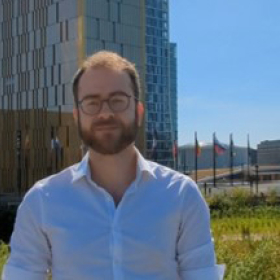

Martijn (Court of Justice of the EU)
“Ik ben Martijn, jurist-linguïst bij het Europees Hof van Justitie in Luxemburg. Na mijn rechtenstudie in Leiden en een periode als universitair docent wilde ik ervaring opdoen op het gebied van Europees recht. Dus solliciteerde ik bij meerdere Europese instellingen, waaronder het Hof van Justitie. Ik had meer bepaald een stage bij de directie Onderzoek en Documentatie op het oog, maar uiteindelijk was het mijn huidige afdelingshoofd die me van een algemene lijst sollicitanten plukte met de vraag of ik geen interesse had in een stage bij de Nederlandstalige vertaalafdeling. Nu had ik weliswaar een perfecte kennis van het Engels, maar een zeer beperkte achtergrond in het Duits en het (veel belangrijkere) Frans. Maar het afdelingshoofd had er wel vertrouwen in.
En zo geschiedde. Dankzij de uitstekende begeleiding vertaal ik vijf jaar later niet alleen uit die drie talen, maar ook uit het Spaans, en ben ik begonnen het werk van anderen te reviseren. Wat mij het meeste aan dit werk bevalt, is dan ook de mogelijkheid en in feite het vereiste om je taalkundige kennis te blijven ontwikkelen.
Maar ons werk is ook vanuit juridisch oogpunt erg interessant. We krijgen stukken onder ogen uit elke stap van de (inhoudelijk uiteenlopende) zaken voor het Hof: van verzoekschrift of prejudiciële vraag tot de einduitspraak. Specifiek in zaken waarin aan het Hof een vraag wordt gesteld door een Nederlandse of Vlaamse rechter spelen wij bovendien een rol bij de verwerking van deze vragen met het oog op de vertaling naar alle andere officiële talen.
Daarnaast is Luxemburg een heel fijne stad om in te wonen. Heel groen, maar ook levendig en natuurlijk erg internationaal. Dat geldt ook voor het Hof zelf, waar je per definitie samenwerkt met mensen uit alle uithoeken van de Europese Unie. En ik kan uit eigen ervaring zeggen dat dit echt een verrijking is, niet alleen professioneel: ik heb inmiddels vrienden uit heel Europa en heb mijn Spaanse verloofde op het Hof … het hof gemaakt. Kan het nog mooier?
Toen ik hier begon, als toch wel erg nerveuze stagiair, had ik nooit kunnen dromen dat ik ruim vijf jaar later in Luxemburg een leven zou hebben opgebouwd.”
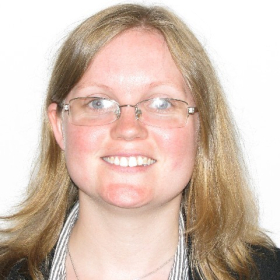
Rose (Court of Justice of the EU)
“I have been working for the Court since 2011, starting as a stagiaire (intern) in the English Translation Unit – now, I advise the Unit on Quality Management issues, in addition to translating from French, Italian, Polish and Romanian (the last two of which I had the opportunity to learn through the Court’s language classes) and correcting freelance and in-house colleagues’ translations from these languages.
My background is primarily in modern languages – my degree was in French and Italian – so it is a real joy to work in an institution and a country where I get to use them every day! Working as a lawyer linguist has also helped me to expand and consolidate my knowledge of EU law (I obtained the Graduate Diploma in Law and completed the Legal Practice Course before coming to Luxembourg) and to gain a deeper insight into the legal systems of the individual Member States.”

Veerle (Court of Justice of the EU)
“Als zeventienjarige een studiekeuze maken is niet voor iedereen even vanzelfsprekend. Je hebt ongetwijfeld heel wat jongeren die al vroeg weten wat ze willen en er volop voor gaan. Zelf kon ik mij onmogelijk tot die groep rekenen: ook als ik alles wat van ver of dicht op exacte wetenschappen leek buiten beschouwing liet, bleven er nog tal van opties over. L’embarras du choix ... Ik schipperde lang tussen rechtenstudies, de opleiding vertaler-tolk of Germaanse taal- en letterkunde. Ik kreeg meer dan eens te horen dat je met een diploma rechten “alle kanten op kan”. Dat gaf uiteindelijk de doorslag.
Toen een professor in mijn tweede jaar rechten wees op de carrièremogelijkheden voor juristen-vertalers bij de Europese Unie en specifiek bij het Hof van Justitie, spitste ik de oren: dit moest wel mijn droombaan zijn! Maar hoe realistisch was die droom om bij de EU aan de slag te gaan? Uiteindelijk werkte ik na mijn studies als advocaat en bedrijfsjurist. Als er intern iets moest worden vertaald of het werk van externe vertaalkantoren moest worden nagelezen, stelde ik me steevast kandidaat. Stilaan werd het zonneklaar: dit was de weg die ik wilde inslaan. Ik startte als vertaler in bijberoep en bij het vorige vergelijkende onderzoek waagde ik mijn kans.
Ik werk nu enkele jaren op de Nederlandstalige vertaalafdeling en leer nog elke dag bij. Heel vaak kan ik de specifieke ervaring die ik eerder als jurist opdeed, inzetten bij het vertalen. Beginnende vertalers worden niet aan hun lot overgelaten. Naast een uitgebreid opleidingsparcours is er binnen de afdeling volop begeleiding en krijg je constructieve feedback.
En Luxemburg? Dat bleek een revelatie. Het land is erg kindvriendelijk en de hoofdstad is op mensenmaat gemaakt. Mijn zoontje van 2,5 jaar krijgt hier in Luxemburg heel wat talen mee: hij gaat naar de crèche in het Frans, volgt turnles in het Engels en begroet mensen vaak met een vrolijk “Moien”. Heel leuk is dat er vlakbij het Hof, in Pfaffenthal, zelfs een Nederlandstalige jeugdbibliotheek is. Er zijn heel veel speelpleinen om te ontdekken en de natuur is hier nooit veraf.
Misschien kan ik jou hier binnenkort verwelkomen?
Vriendelijke groet,
Veerle”

Branislav (Court of Justice of the EU)
“Ahoj, volám sa Branislav a na Súdnom dvore Európskej únie pracujem ako právnik lingvista už viac ako 17 rokov. Vzhľadom na svoje vzdelanie získané na francúzsko-slovenskom bilingválnom gymnáziu a na právnickej fakulte a na bohaté pracovné skúsenosti, ktoré som nadobudol počas piatich rokov na slovenskom vnútroštátnom súde, som sa rozhodol zmeniť prácu a prijať nové výzvy, v rámci ktorých môžem maximálne skĺbiť svoje vedomosti a schopnosti (jazykové aj právne).
Po rozšírení skúseností na stážach vo Francúzsku už bola moja voľba veľmi jednoduchá: Súdny dvor Európskej únie v Luxemburgu: súdna inštitúcia, ktorej jedným z hlavných jazykov komunikácie je francúzština a ktorá sídli v Luxembursku, kde je jedným z úradných jazykov takisto francúzština.
Dvere na Slovenskú prekladateľskú sekciu sa mi pootvorili po absolvovaní stáže na Oddelení výskumu a dokumentácie Súdneho dvora. Práca právnika lingvistu je špecifická tým, že má obrovský potenciál naplniť očakávania každého právnika, ktorý je jazykovo zdatný, má chuť sa ďalej vzdelávať a rád prijíma nové pracovné príležitosti v zahraničí.”
***
“Bonjour, je m'appelle Branislav et je travaille à la Cour de justice de l'Union européenne en tant que juriste-linguiste depuis plus de 17 ans. Compte tenu de ma formation au lycée bilingue français-slovaque et à la faculté de droit, ainsi que de ma vaste expérience acquise au cours de mes cinq années de travail à la cour nationale slovaque, j'ai décidé de chercher un nouvel emploi avec de nouveaux défis, dans lequel je pourrai combiner au maximum mes connaissances et mes compétences (tant linguistiques que juridiques).
Après avoir acquis plus d'expérience au cours de mes stages en France, mon choix était déjà très simple : la Cour de justice de l´Union européenne de Luxembourg : une institution judiciaire dont la langue principale de communication est le français et qui est basée au Luxembourg, où l'une des langues officielles est également le français.
La porte de la section de traduction slovaque s'est ouverte à moi après mon stage au service de recherche et documentation de la Cour de justice. Le travail de juriste-linguiste est spécifique en ce sens qu'il a un grand potentiel pour répondre aux attentes de tout juriste ayant des compétences linguistiques, désireux de poursuivre sa formation et aimant relever les défis du travail à l'étranger.”
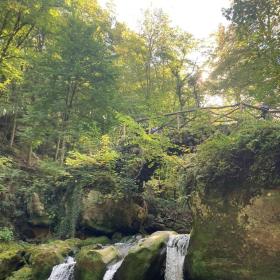
Zuzana (Court of Justice of the EU)
Čím viac som pri cestovaní spoznávala svet, tým viac sa vo mne prehĺbila identita hrdej Európanky. Považujem za privilégium, že k šíreniu hodnôt, na ktorých je postavená Európska únia, môžem po ukončení štúdia práva v Bratislave a vo Viedni prispievať svojou každodennou prácou. Tá mi zároveň umožňuje byť „up-to-date“ priamo pri zdroji v najrozmanitejších oblastiach práva EÚ a zároveň využiť znalosť cudzích jazykov. Zo začiatku som na tejto pozícii ocenila profesionálne vedenie pri nadobúdaní špecifických profesijných skúseností, ako aj rôzne školenia. Postupne som mohla čiastočne pracovať z domu, mať väčšiu samostatnosť a pracovnú flexibilitu. Krásne a moderné priestory budov Súdneho dvora, dobrá organizácia práce, kontinuálna možnosť štúdia jazykov, korektný kolektív a zaujímavé finančné ohodnotenie prispievajú k celkovému výbornému pocitu.
Hoci by sa Luxemburg mohol zo začiatku javiť ako málo pulzujúce miesto, neustále sa vyvíja, čomu prispieva jeho centrálna poloha v blízkosti hraníc s Nemeckom, Francúzskom a Belgickom. Pre mňa osobne je najdôležitejšia skutočnosť, že sa v meste cítim bezpečne, a taktiež oceňujem fungujúce štátne inštitúcie a pluralitnú, tolerantnú spoločnosť. Luxemburg ponúka množstvo kultúrnych príležitostí, ako aj možnosť dostať sa verejnou dopravou zdarma na výlety do prírody v rámci krajiny. Možnosť žiť v meste, ktoré je svetovým dedičstvom UNESCO a je tak ľahko dostupné, zaiste vykompenzuje aj tých pár kvapiek dažďa navyše.
***
The more I explored the world while travelling, the more my identity as a proud European deepened. I consider it a privilege to be able to contribute to spreading the values on which the European Union is built through my daily work after completing my law studies in Bratislava and Vienna. It also allows me to be "up-to-date" at the source in the most diverse areas of EU law, while at the same time making use of my knowledge of foreign languages. In the beginning, I appreciated the professional guidance in gaining specific professional experience as well as the various training opportunities. Gradually, I was able to work partly from home and have more autonomy and work flexibility. The beautiful and modern premises of the Court of Justice buildings, the good organisation of work, the continuous opportunity to learn languages, the correct team and the interesting financial remuneration contribute to an overall excellent feeling.
Although Luxembourg might initially appear to be a place with little vibrancy, it is constantly evolving, helped by its central location close to the borders with Germany, France and Belgium. Most important for me personally is the fact that I feel safe in the city, and I also appreciate the functioning state institutions and the pluralistic, tolerant society. Luxembourg offers many cultural opportunities, as well as the possibility to get free public transport to go on nature trips within the country. The opportunity to live in a city that is a UNESCO World Heritage Site and so easily accessible certainly makes up for the extra few drops of rain.
***
Photo: Luxembourg countryside
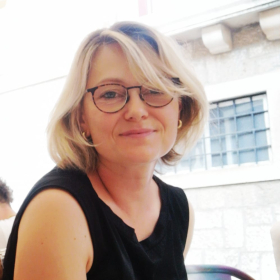
Marcela (Court of Justice of the EU)
“Volám sa Marcela a pochádzam zo Slovenska.
Vyštudovala som Právnickú fakultu UPJŠ v Košiciach.
V čase, keď som končila štúdium práva, Slovensko bolo krátko pred vstupom do EÚ a mne bolo už vtedy jasné, že chcem byť súčasťou európskeho projektu. V Bratislave som sa začala venovať aproximácii práva a keďže ma vždy bavili aj jazyky, postupne som sa špecializovala na prekladanie legislatívy EÚ a rozsudkov Európskeho súdu pre ľudské práva.
V súčasnosti pracujem ako právnička lingvistka na slovenskej sekcii Generálneho riaditeľstva pre multilingvizmus na Súdnom dvore EÚ v Luxemburgu. Pri mojej práci sa odo mňa očakáva skĺbenie právnických vedomostí so znalosťou jazykov a zároveň sústavné vzdelávanie v právnickej aj jazykovej oblasti, a to v multikultúrnom a multijazyčnom prostredí. V závislosti od konkrétneho druhu súdneho konania sa venujem analýze, prekladu a revíziám rôznych typov dokumentov. Moja práca mi umožňuje byť súčasťou procesov, ktoré vychádzajú z cieľa jazykového režimu Súdneho dvora – šíriť judikatúru do všetkých členských štátov a poskytovať prístup k spravodlivosti pre všetkých občanov EÚ. Práve preto ma baví a napĺňa.”
***
“My name is Marcela and I come from Slovakia.
I graduated from the Faculty of Law at the University of P. J. Šafárik in Košice.
When I finished my legal studies, Slovakia was just about to join the EU and it was clear to me at that time that I wanted to be part of the European project. In Bratislava, I started to work on approximation of laws, and as I have always been interested in languages, I gradually specialised in translating EU legislation and judgments of the European Court of Human Rights.
Currently, I work as a lawyer-linguist in the Slovak section of the Directorate General for Multilinguism at the Court of Justice of the European Union in Luxembourg. My work requires me to combine legal knowledge with language skills and requires continuous training in both legal and linguistic fields, in a multicultural and multilingual environment. Depending on the specific type of legal proceedings, I analyse, translate and revise different types of legal documents. In this position, I am part of the processes which are based on the objective of the Court of Justice's linguistic regime - to disseminate case-law to all Member States and to provide access to justice for all EU citizens. That is why I enjoy and find this work fulfilling.”
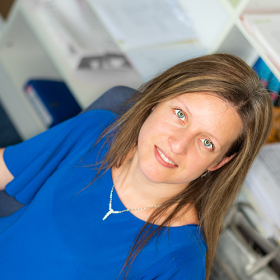
Ieva (Court of Justice of the EU)
“Suderinti teisės žinias ir pomėgį kalboms – visiškai įmanoma! Būtent tai mes, teisininkai lingvistai, darome kasdien, ieškodami sąsajų tarp skirtingų ES valstybių narių teisės sistemų, perteikdami jų skirtumus, gilindamiesi į teisinius terminus ir kalbines raiškos formas skirtingomis šių valstybių kalbomis. Dirbdama teisininke lingviste Teisingumo Teisme, atradau, kad tiek Lietuvos, tiek bet kurios kitos valstybės narės teisė visgi nėra tik nacionaliniu lygmeniu pritaikoma sritis, kad jos žinias galima pritaikyti daug plačiau, taip pat gilinti žinias įvairiose teisės srityse. O kur dar galimybė gyventi ir dirbti daugiakalbėje ir daugiakultūrėje aplinkoje, kai kalbų mokaisi ne vien iš vadovėlio, o susiduri su jomis nuolat, jų įvairovė tampa įprasta kasdienybe. Pabandykite ir įsitikinsite – šis darbas labai įdomus!”
***
“It‘s absolutely possible to combine your legal knowledge and vocation to learn languages! This is exactly what we do every day as lawyer linguists, looking for links and relations between the legal systems of different EU member states, conveying their differences, going into details when we search for appropriate terms and forms of expression, so that our translation does not look like translation, but more as if the text would be elaborated in our own language. Working as lawyer linguist at the Court of Justice, I found out that the national law of Lithuania (and of any other member state) is not only relevant at the national level, that I can apply this knowledge much more widely and learn something new in different law areas as well. In addition, I should mention the opportunity to live and to work in a multilingual and multicultural environment where you learn languages not only from a textbook, but are constantly surrounded by people speaking these languages, this diversity becomes a part of everyday life. Just try and you will see that this work is very interesting!”
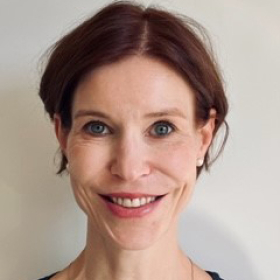
Veronika (Court of Justice of the EU)
“Ako právnička lingvistka na Slovenskej prekladateľskej sekcii Súdneho dvora EÚ pracujem už 16 rokov. Rozhodnutie prijať ponuku Súdneho dvora nebolo jednoduché, keďže som zvažovala rodinné dôvody. No pracovať pre tak významnú inštitúciu bolo pre mňa veľkou výzvou, ktorú som sa rozhodla prijať. Svoje rozhodnutie som neoľutovala.
Náplňou tejto práce sú preklady a revízie dokumentov Súdneho dvora, ako sú rozsudky, uznesenia a návrhy generálnych advokátov. Prekladáme tiež návrhy na začatie prejudiciálneho konania podané slovenskými súdmi, pripravujeme zhrnutia takýchto návrhov a pre potreby ostatných oddelení Súdneho dvora vykonávame rôzne právne analýzy. Podieľame sa aj na projektoch v oblasti terminológie, ako aj verejného obstarávania na uzavretie zmlúv s externými prekladateľmi.
Ja osobne vnímam ako najväčšie pozitívum práce pre Súdny dvor možnosť kontinuálneho odborného vzdelávania. Súdny dvor ponúka širokú škálu školení: od odborných, cez štúdium jazykov, prehlbovanie si znalostí v oblasti informačných technológií, až po školenia zamerané na osobný manažment.
Taktiež veľmi oceňujem dôsledné dodržiavanie rovnosti medzi ženami a mužmi a dôraz Súdneho dvora na duševnú a pracovnú pohodu svojich pracovníkov.
Cením si tiež dostatočnú flexibilitu, ktorú máme pri výkone našej práce, čo nám umožňuje skĺbiť pracovný a rodinný život. Na našom oddelení panujú dobré kolegiálne vzťahy, čo je nepochybne dôležitým prvkom pohody na pracovisku.
Práca právnika lingvistu je vhodná pre každého, kto má právnické vzdelanie a baví ho pracovať s jazykmi a ďalej sa v týchto oblastiach rozvíjať. Ak vás táto pracovná pozícia zaujala, určite sa do výberového konania na právnikov lingvistov pre Súdny dvor prihláste.”
***
“I have been working as a lawyer-linguist in the Slovak translation unit of the Court of Justice of the EU for 16 years. The decision to accept the offer of the Court of Justice was not an easy one because as I was considering family reasons. However, working for such an important institution was a great challenge for me, which I decided to accept. I have not regretted my decision.
This work involves translating and revising documents of the Court of Justice, such as judgments, orders and opinions of the Advocates-General. We also translate references for preliminary rulings from Slovak courts, prepare summaries of such references and perform, for the needs of other departments, various legal analyses. We are also involved in projects in the field of terminology, as well as tendering for freelance translators.
Personally, I see the opportunity for continuous professional training as the greatest positive aspect of working for the Court of Justice. The Court of Justice offers a wide range of training, such as professional training, language learning, deepening knowledge in the field of information technology or training in personal management.
I am also very appreciative of the Court's strict adherence to equality between women and men at work and the Court's emphasis on the mental and occupational well-being of its staff.
I also appreciate the flexibility we have in the performance of our work, which allows us to combine work and family life. There are good collegial relations in our department, which is undoubtedly an important element of well-being in the workplace.
The job of a lawyer-linguist is suitable for anyone who has a legal background and enjoys working with languages.”
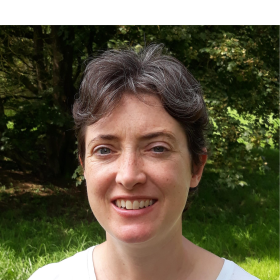
Helen (Court of Justice of the EU)
“I joined the English translation unit at the Court of Justice after completing a degree in French and Czech, followed by a law conversion course and then the LPC. I was keen to use my language skills and was interested in legal drafting, so the job appealed to me from the outset.
However, while legal writing skills are an important part of our work, the role of a lawyer-linguist involves much more than translation. We are called on to liaise with members of the Judges’ chambers on the precise meaning and nuances to be given to a finished translation and in my time here I have been involved in terminology work, mentoring and recruitment. I have followed a wide range of training courses, covering the latest information technology tools, European and comparative law and personal development. We are also encouraged to acquire additional languages, in my case Spanish and Polish.
In my view, a career as an EU lawyer-linguist is stimulating and rewarding for anyone who enjoys word-play and problem solving. It is also fascinating to work at the forefront of the latest developments in EU law.”

